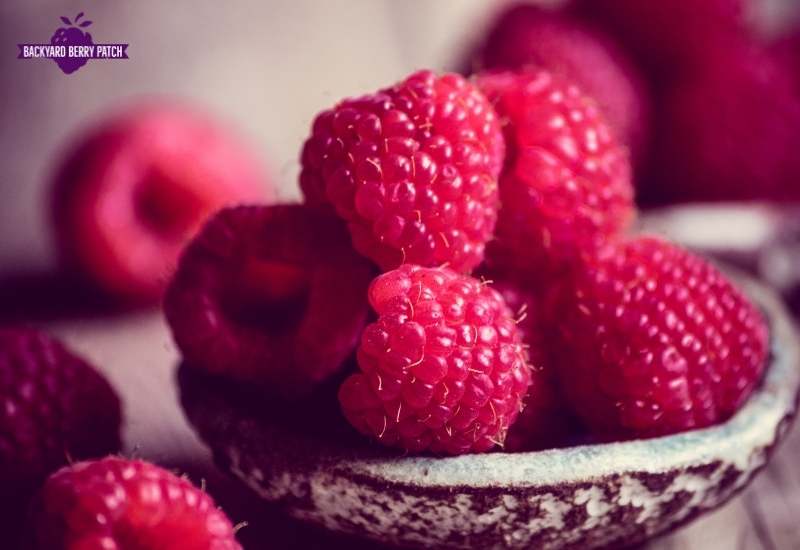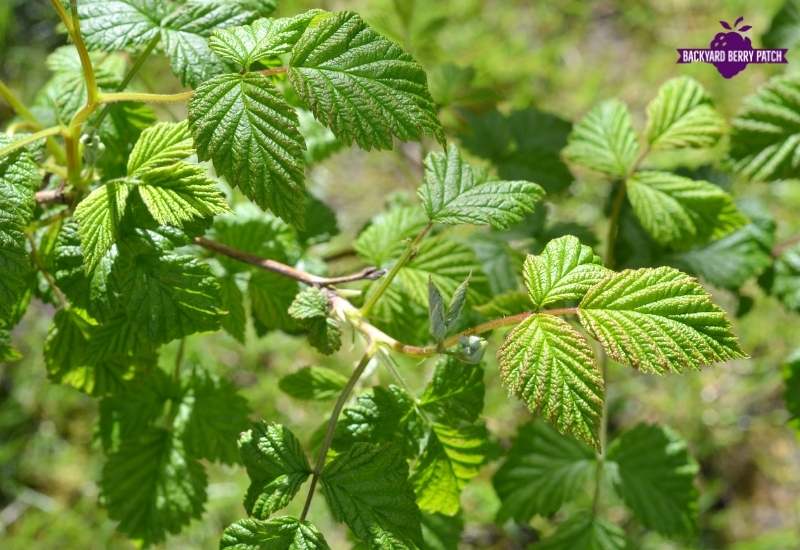Growing raspberries in Massachusetts can be a fun and rewarding hobby. These tasty berries are perfect for snacking, baking, and making jams. With the right care, you can enjoy fresh raspberries from your own backyard.
The best raspberry varieties for Massachusetts gardens include Killarney, Heritage, and Latham. These types are known for their cold hardiness, which is important in the state’s climate. They produce sweet, flavorful berries that are sure to delight your taste buds.
When planting raspberries, pick a sunny spot with well-drained soil. Spring is the ideal time to plant in Massachusetts. Make sure to space your plants properly and give them plenty of water.
With some care and patience, you’ll soon be harvesting delicious homegrown raspberries.

Massachusetts Climate And Soil Overview
Massachusetts has a climate that’s great for growing raspberries. You’ll find that the state falls in hardiness zones 5-7, which means cold winters and warm summers.
The soil in Massachusetts varies, but it’s often acidic. You’ll want to aim for a soil pH between 5.5 and 6.5 for your raspberries. Don’t worry if your soil isn’t perfect – you can easily adjust it!
Here’s a quick soil checklist for your raspberry patch:
- Well-draining soil
- Rich in organic matter
- Slightly acidic pH
If your soil is heavy clay, mix in some peat moss. This will help with drainage and add nutrients.
Rainfall in Massachusetts is usually enough for raspberries. But in dry spells, you might need to water. A good irrigation system can be a lifesaver.
Watch out for diseases like anthracnose. Good air circulation and proper pruning can help prevent this.
Remember, healthy soil means healthy plants. Adding organic fertilizer can give your raspberries the boost they need.

Recommended Thornless Raspberry Varieties In Massachusetts
If you’re looking for easy-to-pick raspberries without the prickles, try growing thornless varieties in your Massachusetts garden. These plants are perfect for walkways and small spaces.
One popular option is Joan J, a thornless everbearing raspberry. You’ll enjoy its sweet fruit twice a year – in summer and fall. It’s great for fresh eating and freezing.
Another excellent choice is the Polka raspberry. This variety produces large, firm berries and is nearly thornless. You’ll find it easy to care for and resistant to many common diseases.
For golden fruit, try Fall Gold. While not completely thornless, it has very few thorns. You’ll love its sweet flavor and unique color.
When planting these varieties, remember proper spacing:
- 2-3 feet between plants
- 6-8 feet between rows
Trellising is important for thornless raspberries. You can use a simple wire trellis to keep plants upright and make harvesting easier.
Here’s a quick comparison of these varieties:
| Variety | Color | Bearing Type | Harvest Time |
|---|---|---|---|
| Joan J | Red | Everbearing | Summer & Fall |
| Polka | Red | Fall-bearing | Late Summer |
| Fall Gold | Gold | Everbearing | Summer & Fall |
Recommended Thorny Raspberry Varieties In Massachusetts
If you’re looking for thorny raspberry varieties to grow in Massachusetts, you have some great options. Thorny raspberries can offer excellent yields and flavor.
One popular choice is the Heritage raspberry. This variety produces fruit on both primocanes and floricanes, giving you two harvests per year.
The Boyne raspberry is another excellent thorny option. It’s known for its cold hardiness, making it well-suited for Massachusetts winters.
Killarney raspberries are also worth considering. They produce bright red, flavorful berries and have good disease resistance.
For black raspberries, try the Jewel variety. It offers large, glossy berries with a rich flavor.
Here’s a quick comparison of these thorny varieties:
| Variety | Type | Harvest Season |
|---|---|---|
| Heritage | Red | Summer and Fall |
| Boyne | Red | Summer |
| Killarney | Red | Summer |
| Jewel | Black | Summer |
When planting your thorny raspberries, remember to space them properly. You might want to grow them along a fence for support.
Mulching around your raspberry bushes can help retain moisture and suppress weeds. This is especially helpful for summer-bearing varieties.
With proper care, these thorny raspberry cultivars can provide you with bountiful harvests of delicious berries in your Massachusetts garden.

Leave a Reply